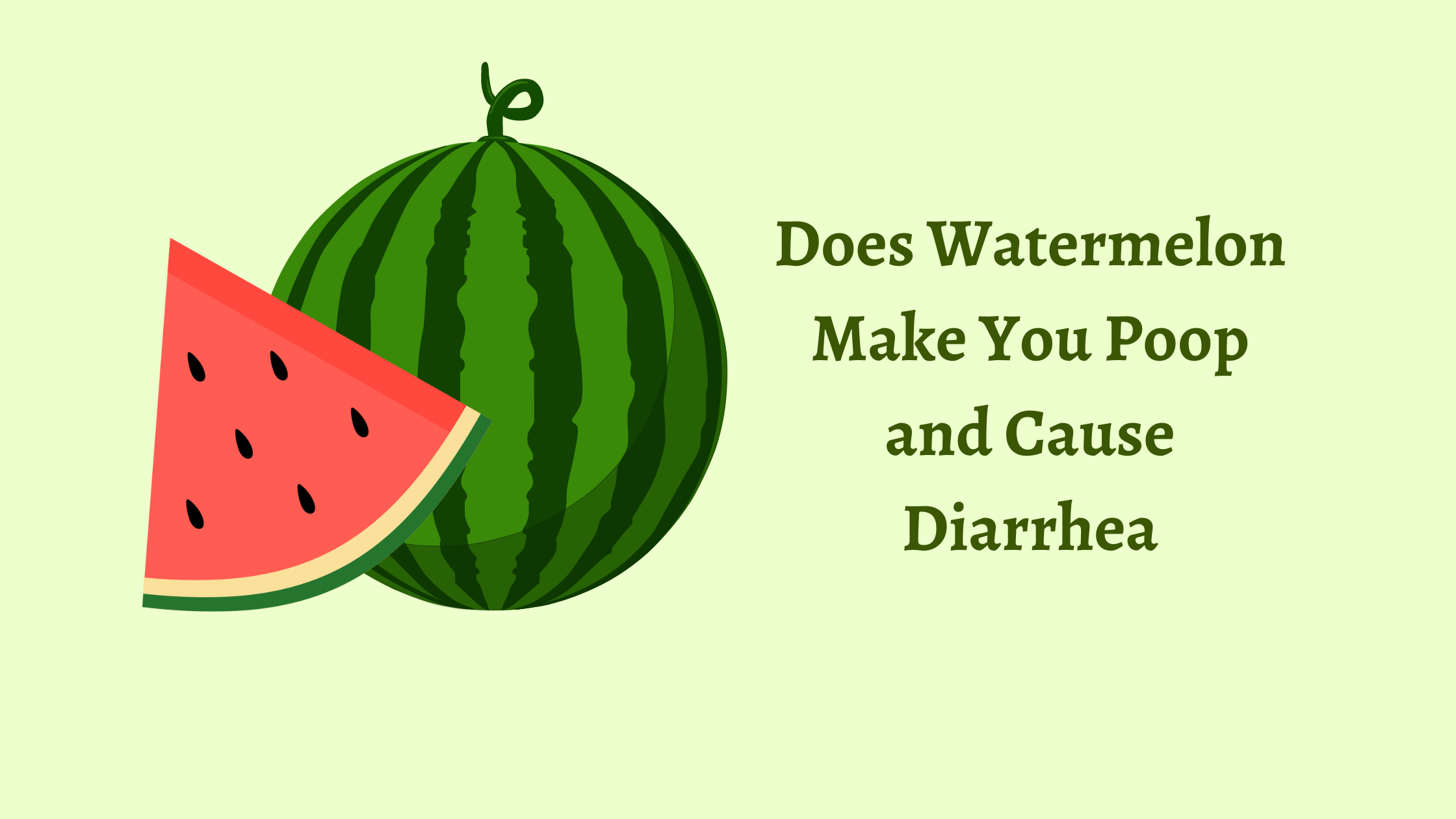
Watermelon is a refreshing and tasty fruit that is popular all over the world, especially in summer. It is a low-calorie and hydrating fruit that is high in vitamins A, B6, and C, as well as minerals such as potassium and magnesium. However, there are some claims that eating watermelon can make you poop or cause diarrhea.
Does watermelon make you poop and cause diarrhea? “Yes, watermelon makes you poop and cause diarrhea. While it is true that watermelon can make you poop due to its high water and fiber content, it is not true that watermelon typically causes diarrhea. In fact, watermelon is generally a safe and healthy food that is unlikely to cause digestive issues, unless you have an underlying condition or are allergic to the fruit. If you experience diarrhea after eating watermelon, it could be due to foodborne illness, contamination, or other factors, and it is important to seek medical attention if your symptoms persist or worsen”.
Watermelon is a juicy, refreshing fruit that is beloved by many. It is a member of the Cucurbitaceae family, which includes other fruits such as cantaloupe, honeydew, and cucumber. Watermelon is typically consumed during the summer months due to its high water content and sweet flavor, and it is commonly served sliced or cubed as a snack or dessert. In addition to its delicious taste, watermelon also offers a range of health benefits, including hydration, improved digestion, and reduced inflammation. However, there are also some misconceptions about the effects of watermelon on the digestive system, particularly with regard to whether it can cause diarrhea or other digestive issues. In this article, we will explore the relationship between watermelon and the digestive system, and examine whether watermelon can indeed make you poop and cause diarrhea.
Does watermelon make you poop?
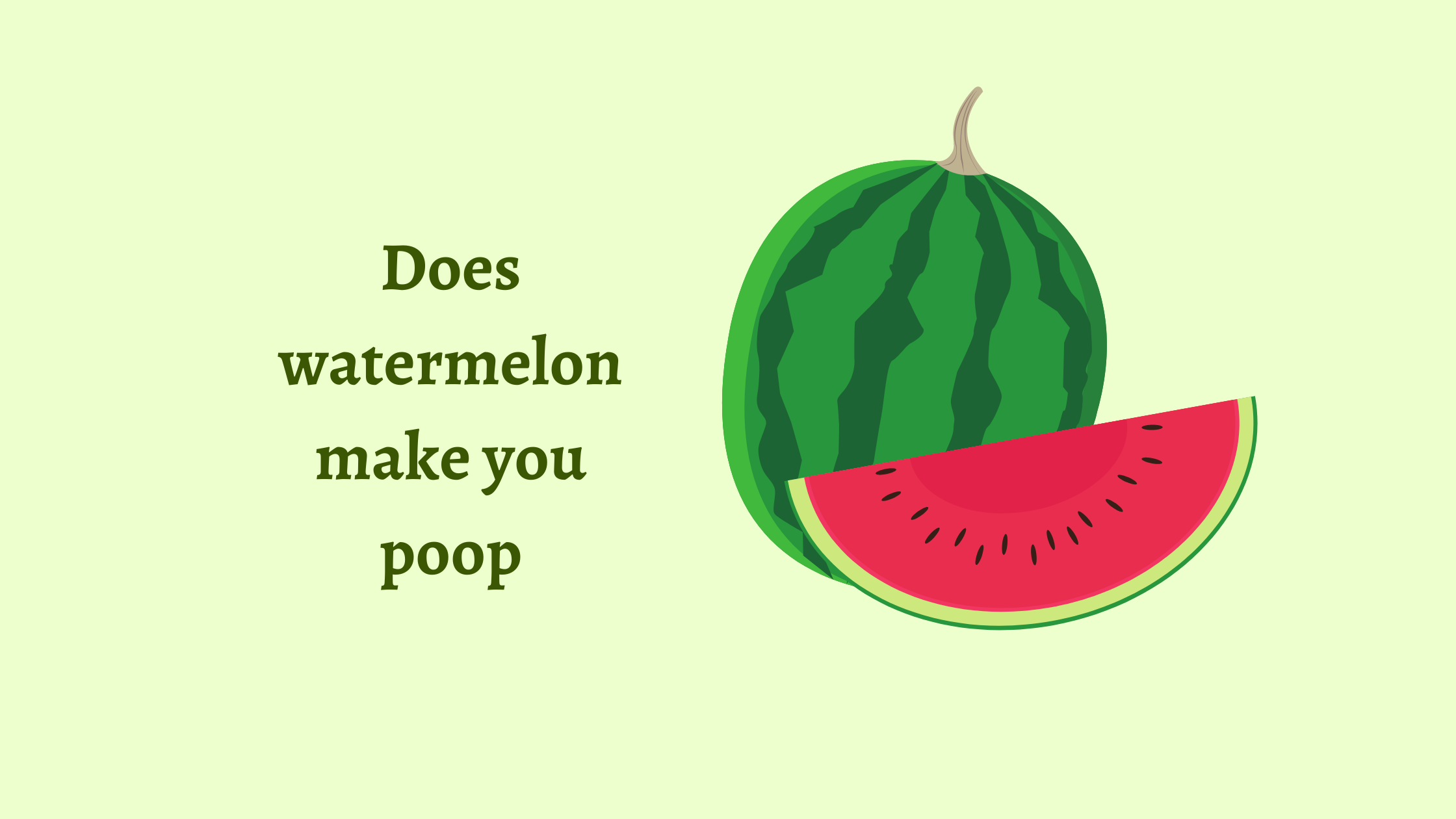
Yes, watermelon can make you poop. This is because watermelon is high in water and fiber, both of which are important for maintaining healthy digestion. The high water content of watermelon can help flush out your digestive system, while the fiber helps promote regular bowel movements.
Fiber is an important nutrient that promotes digestive health by adding bulk to your stools, making them easier to pass. According to the American Dietetic Association, the recommended daily intake of fiber is 25-30 grams for adults. Watermelon is a good source of fiber, with around 1 gram of fiber per cup (152 grams) of diced watermelon.
However, if you are not used to consuming high-fiber foods, you may experience some bloating, gas, or abdominal discomfort when you eat watermelon. This is because your body needs time to adjust to the increased fiber intake. To prevent these side effects, you can gradually increase your fiber intake over several weeks and drink plenty of water to help your body digest the fiber more easily.
Does watermelon cause diarrhea?
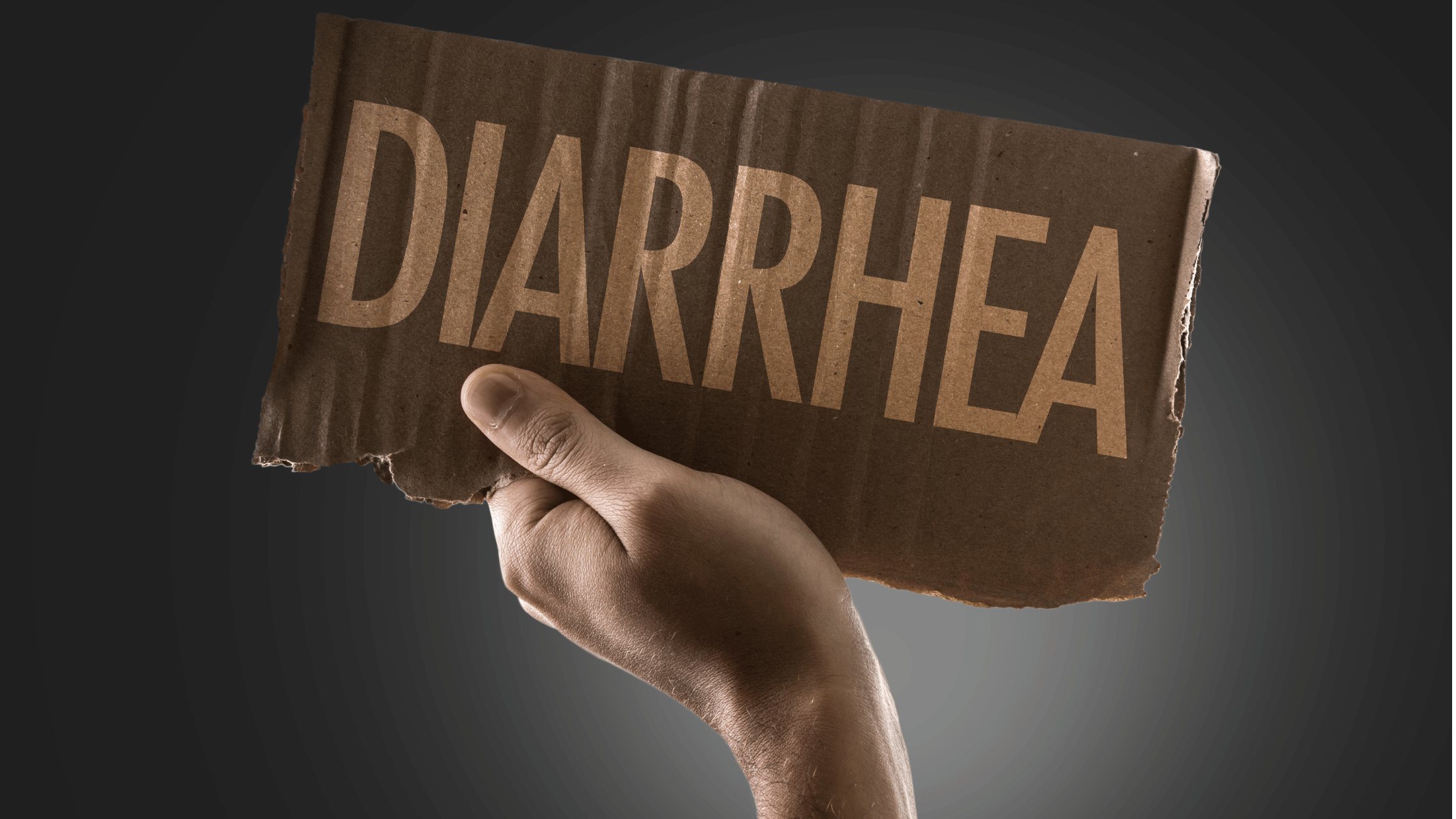
While watermelon can help promote regular bowel movements, it is unlikely to cause diarrhea in healthy individuals. In fact, watermelon is a low-FODMAP fruit, which means it is unlikely to trigger digestive symptoms in people with irritable bowel syndrome (IBS).
However, if you eat too much watermelon or consume it too quickly, you may experience some digestive discomfort, such as bloating, gas, or diarrhea. This is because the high water content of watermelon can dilute the digestive juices in your stomach and intestines, making it harder for your body to break down food. To prevent these symptoms, it is best to eat watermelon in moderation and chew it well to aid digestion.
Is it normal when watermelon makes you poop?
Yes, it is normal for watermelon to make you poop. As we mentioned earlier, watermelon is high in water and fiber, both of which are essential for maintaining healthy bowel movements. If you eat watermelon regularly, you may notice that your stools become more regular and easier to pass.
However, if you experience sudden changes in your bowel movements or notice blood in your stools, you should consult a healthcare professional, as these symptoms could indicate a more serious underlying condition.
Is it normal when watermelon gives you diarrhea?
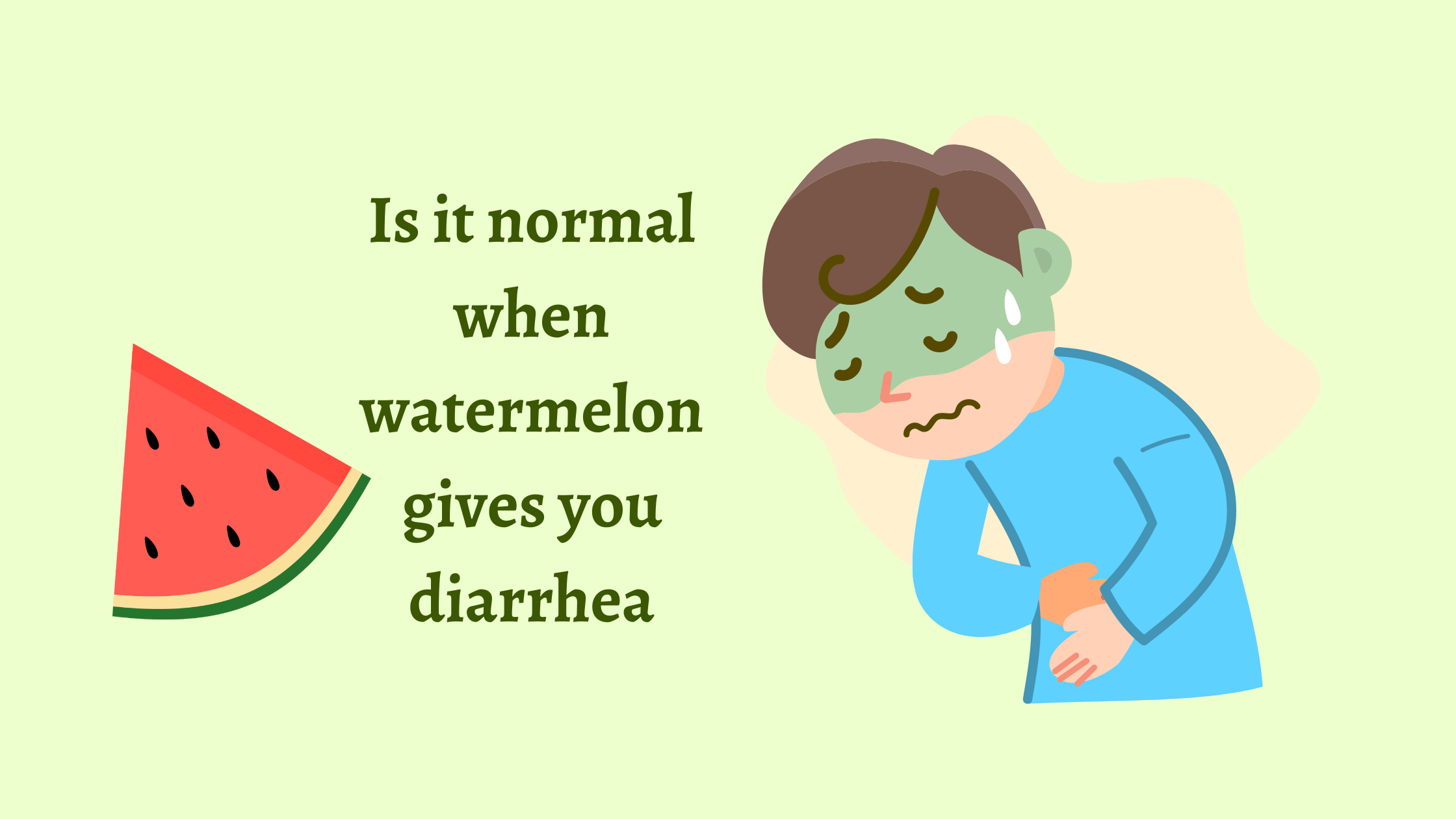
No, it is not normal for watermelon to give you diarrhea, especially if you are otherwise healthy. While it is possible to experience digestive discomfort when eating watermelon, such as bloating, gas, or abdominal pain, diarrhea is usually a sign that something is wrong.
If you experience diarrhea after eating watermelon, it could be due to a foodborne illness or an allergy to the fruit. In some cases, watermelon can also be contaminated with harmful bacteria, such as Salmonella or E. coli, which can cause diarrhea and other gastrointestinal symptoms. If you experience diarrhea after eating watermelon, it is best to avoid the fruit until you can determine the cause of your symptoms.
Why does watermelon make me poop?
Watermelon can make you poop because it is high in water and fiber, both of which promote healthy digestion and bowel movements. The high water content of watermelon can help flush out your digestive system, while the fiber adds bulk to your stools and makes them easier to pass. Additionally, watermelon contains a natural sugar called sorbitol, which can have a mild laxative effect on some people.
However, if you experience diarrhea or other digestive discomfort after eating watermelon, it could be due to a number of factors, such as eating too much too quickly, not chewing it well, or having an underlying digestive condition.
Why does watermelon give me diarrhea?
Watermelon is unlikely to give you diarrhea, unless you have an underlying digestive condition or are allergic to the fruit. However, if you experience diarrhea after eating watermelon, it could be due to a foodborne illness or contamination with harmful bacteria, such as Salmonella or E. coli.
In some cases, watermelon can also be contaminated with pesticides or other toxins, which can cause digestive symptoms. If you experience diarrhea or other gastrointestinal symptoms after eating watermelon, it is best to avoid the fruit until you can determine the cause of your symptoms.
What to do if watermelon makes you poop?
If watermelon makes you poop, there is usually no cause for concern, as this is a normal and healthy bodily function. However, if you experience bloating, gas, or abdominal discomfort after eating watermelon, you may want to reduce your intake or eat it more slowly to aid digestion.
Additionally, it is important to drink plenty of water when consuming high-fiber foods, such as watermelon, to help your body digest the fiber more easily. If you experience any sudden changes in your bowel movements or notice blood in your stools, you should consult a healthcare professional, as these symptoms could indicate a more serious underlying condition.
What to do if watermelon gives you diarrhea?
If watermelon gives you diarrhea, it is best to avoid the fruit until you can determine the cause of your symptoms. If your diarrhea persists for more than a few days or is accompanied by other symptoms, such as fever or abdominal pain, you should consult a healthcare professional.
In the meantime, it is important to stay hydrated and replace any fluids and electrolytes lost through diarrhea. You can do this by drinking clear fluids, such as water, broth, or electrolyte solutions, and avoiding caffeine, alcohol, and sugary drinks, which can worsen diarrhea.
How fast does watermelon make you poop?
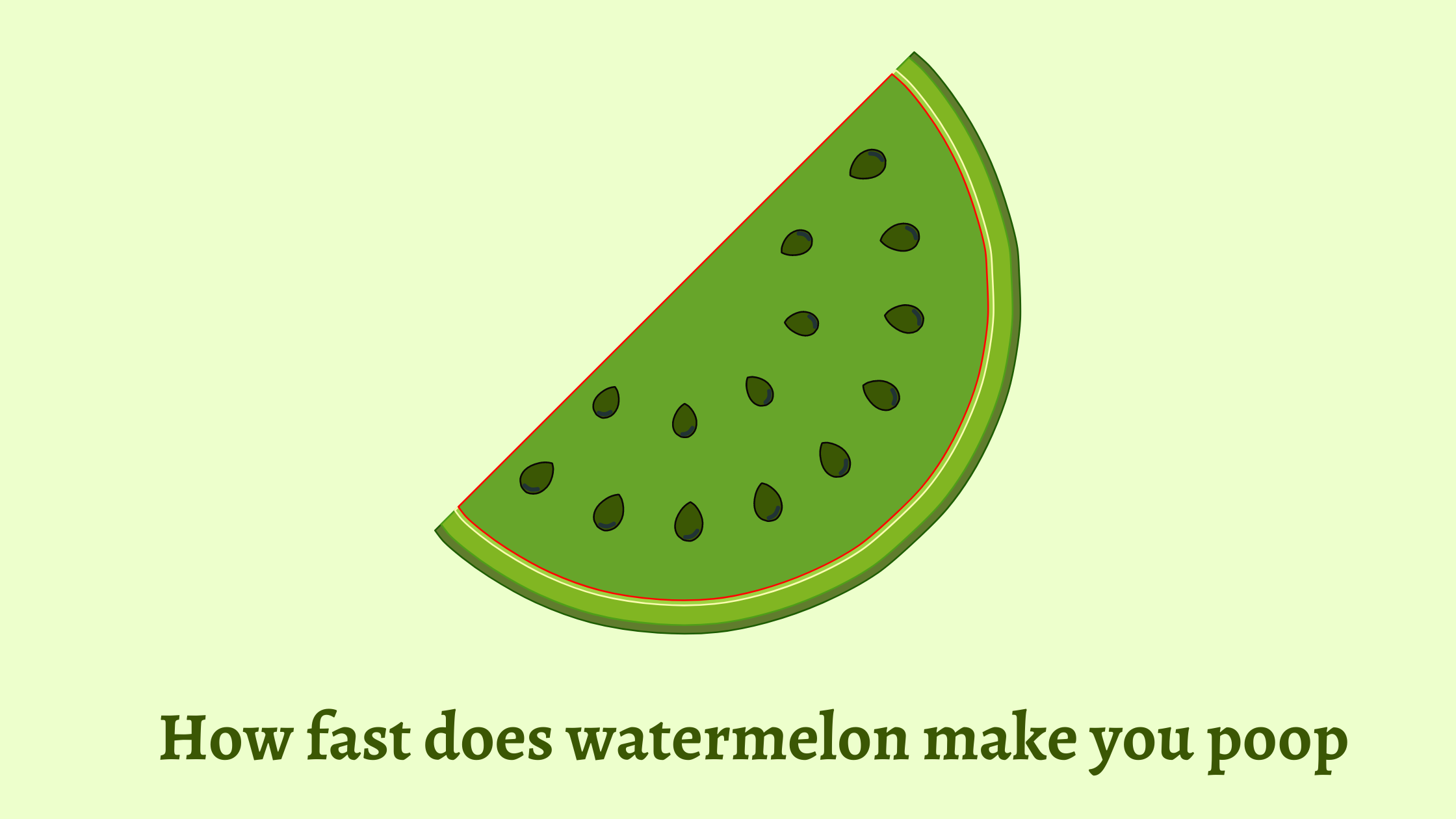
The time it takes for watermelon to make you poop can vary depending on a number of factors, such as your individual digestive system, how much watermelon you eat, and how quickly you eat it. However, in general, you can expect to have a bowel movement within a few hours of eating watermelon.
This is because the high water content of watermelon can help flush out your digestive system, while the fiber adds bulk to your stools and promotes regular bowel movements. If you experience any sudden changes in your bowel movements or notice blood in your stools, you should consult a healthcare professional, as these symptoms could indicate a more serious underlying condition.
Does watermelon help with constipation?
Yes, watermelon can help with constipation, as it is high in water and fiber, both of which are essential for maintaining healthy bowel movements. The high water content of watermelon can help flush out your digestive system, while the fiber adds bulk to your stools and makes them easier to pass.
Additionally, watermelon contains a natural sugar called sorbitol, which can have a mild laxative effect on some people. However, if you have chronic constipation or other digestive issues, it is important to consult a healthcare professional before relying solely on dietary changes to manage your symptoms.
Frequently ask Questions
Does watermelon change stool color?
No, watermelon does not typically change stool color.
Do lots of watermelons make you poop more?
Yes, consuming a lot of watermelon can increase the frequency of bowel movements.
Is watermelon a natural laxative?
Yes, watermelon contains fiber and a natural sugar called sorbitol, which can have a mild laxative effect on some people.
Does watermelon make you poop green?
No, watermelon does not typically make you poop green.
Does watermelon make your poop pink?
In rare cases, consuming large amounts of watermelon can make your poop appear pink, but this is usually harmless and resolves on its own.
Does watermelon make your poop float?
It is possible for watermelon to make your poop float, as the high water content and fiber can add bulk to your stools. However, floating stools can also be a sign of other underlying digestive issues, so it is important to consult a healthcare professional if you experience this symptom.
Conclusion
Watermelon can make you poop due to its high water and fiber content, but it does not typically cause diarrhea. Watermelon is generally a safe and healthy food that can even help with constipation due to its natural laxative properties. However, if you experience digestive issues after eating watermelon, it is important to consider other factors, such as foodborne illness, contamination, or underlying health conditions. As with any dietary change, it is always important to listen to your body and consult a healthcare professional if you have any concerns or persistent symptoms.
Thanks for reading!